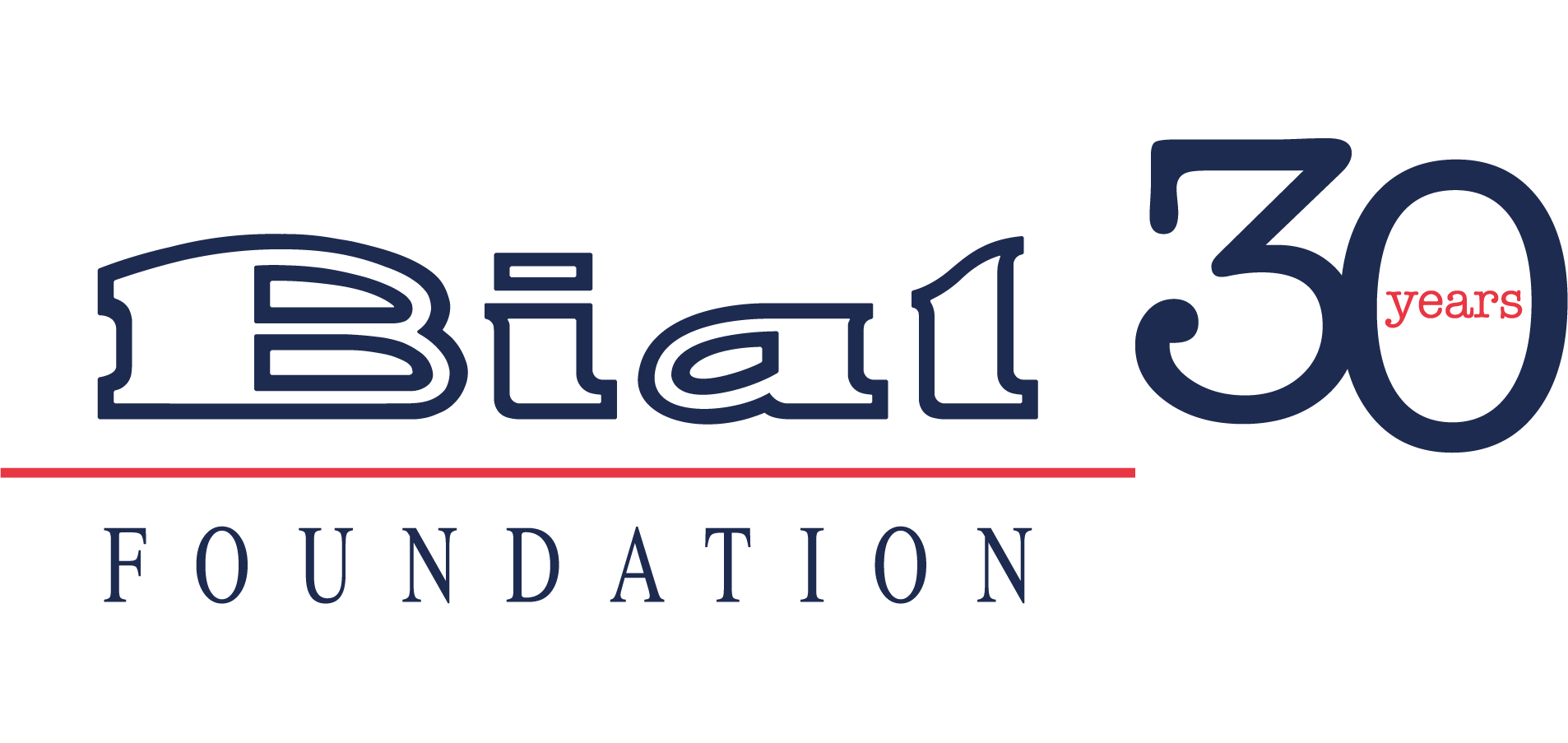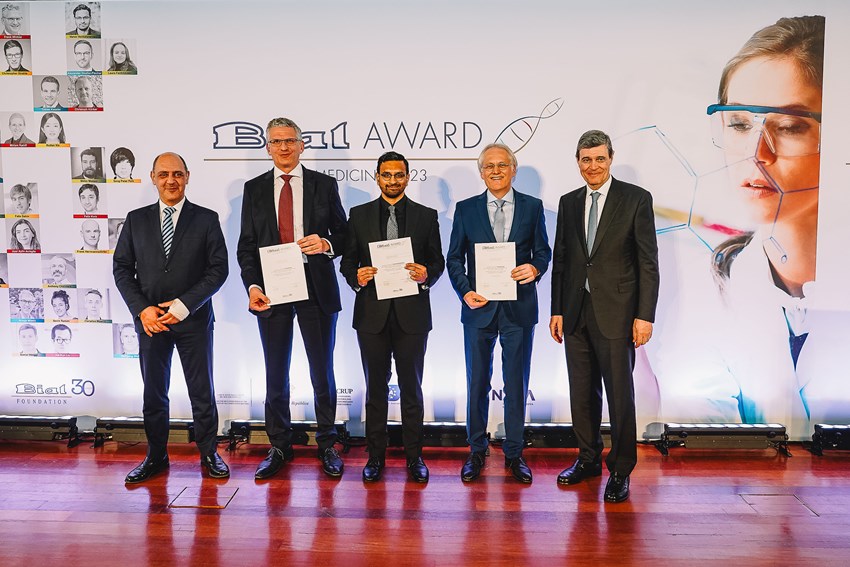A team led by researchers Varun Venkataramani (first author), Frank Winkler, and Thomas Kuner (senior co-authors), from the University of Heidelberg in Germany, won the third edition of the BIAL Award in Biomedicine with a work focused on the cell biology of cancer which can be considered a cornerstone for the emerging field of cancer neuroscience (watch the video of the winning work here).
The award was delivered in a ceremony held at the Rectory of the University of Lisbon on February 20 and was attended by the Minister of Health, Manuel Pizarro, the Rector of the University of Lisbon, João Sàágua, the Chairman of the BIAL Foundation, Luís Portela, the President of the Jury, Ralph Adolphs, and award-winning authors Varun Venkataramani, Frank Winkler, and Thomas Kuner.
Unable to physically attend the ceremony, the President of the Republic sent a testimony (watch the video here) expressing his gratitude for the work carried out by the BIAL Foundation over its 30 years. "The BIAL Foundation has not only exceeded expectations but has also achieved international prestige and recognition that makes our country so proud", said Marcelo Rebelo de Sousa.
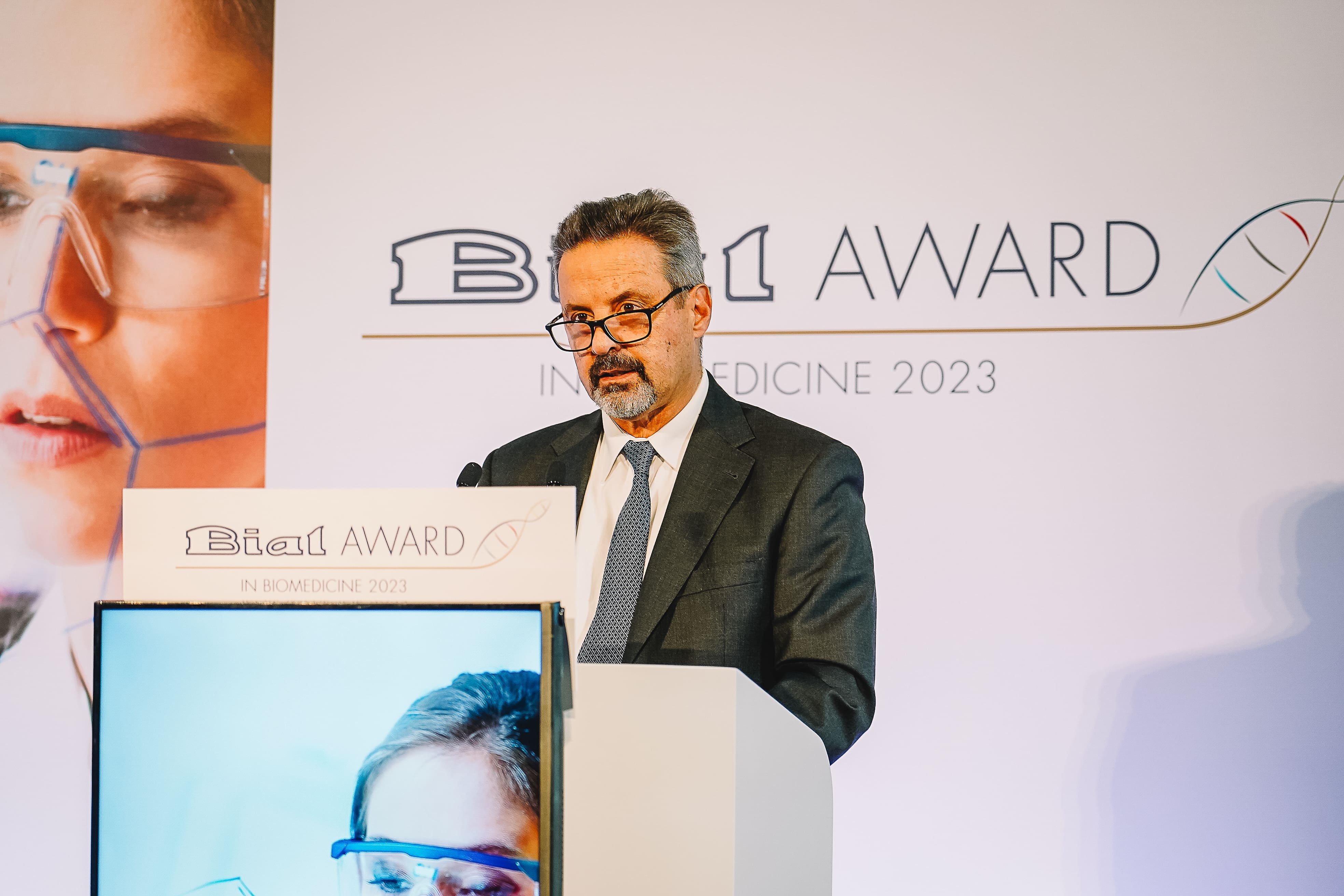
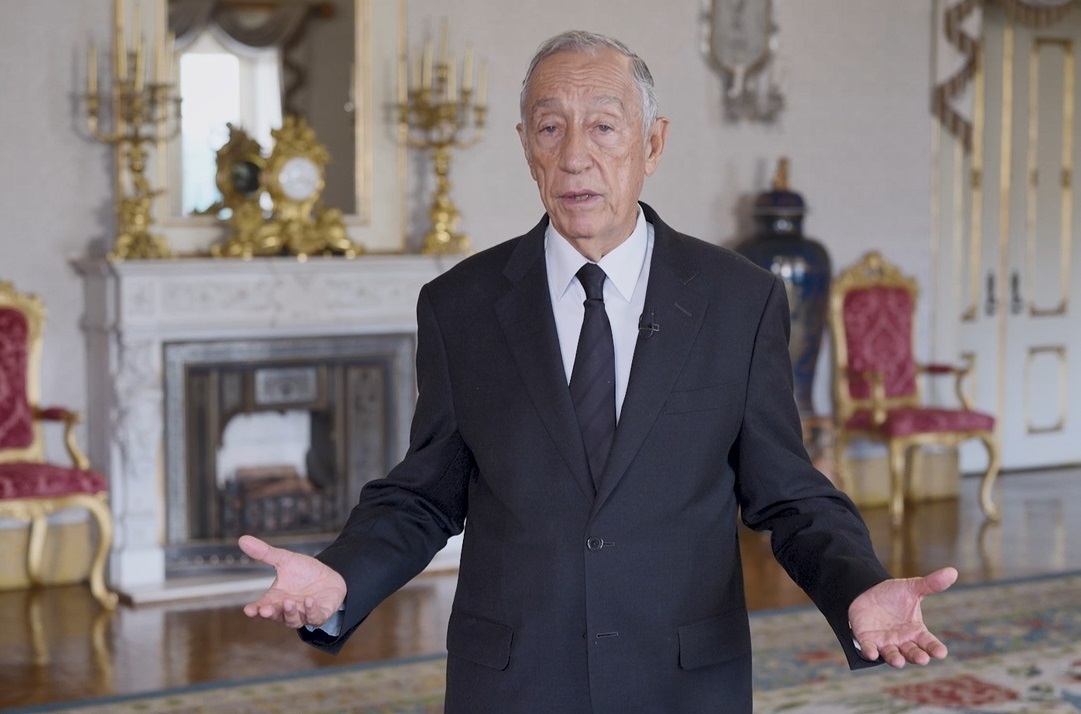
The study “Glutamatergic synaptic input to glioma cells drives brain tumour progression”, published in the journal Nature in September 2019, represents breakthrough research important for understanding human cancer, specifically glioblastoma, a very aggressive type of brain tumour with an average survival time of just 1.5 years, even with state-of-the-art treatment. The authors showed that glioblastomas and other incurable glioma types are able to integrate themselves into the function of the brain, and it was discovered that input from healthy brain cells, normally used in functions such as thinking and memory, drives the progression of gliomas. This is possible by formation of synapses between neurons and cancer cells.
The BIAL Award in Biomedicine 2023, with the amount of 300,000 Euros, distinguishes the work of Venkataramani, Winkler, Kuner, and 26 other co-authors, researchers from the Heidelberg University, Heidelberg University Hospital, German Cancer Research Center, University Hospital Mannheim, Otto-von-Guericke University (Germany), Johns Hopkins University School of Medicine (USA), University of Glasgow (UK), University of Bergen, and Haukeland University Hospital (Norway), at the time of publication of the research report.
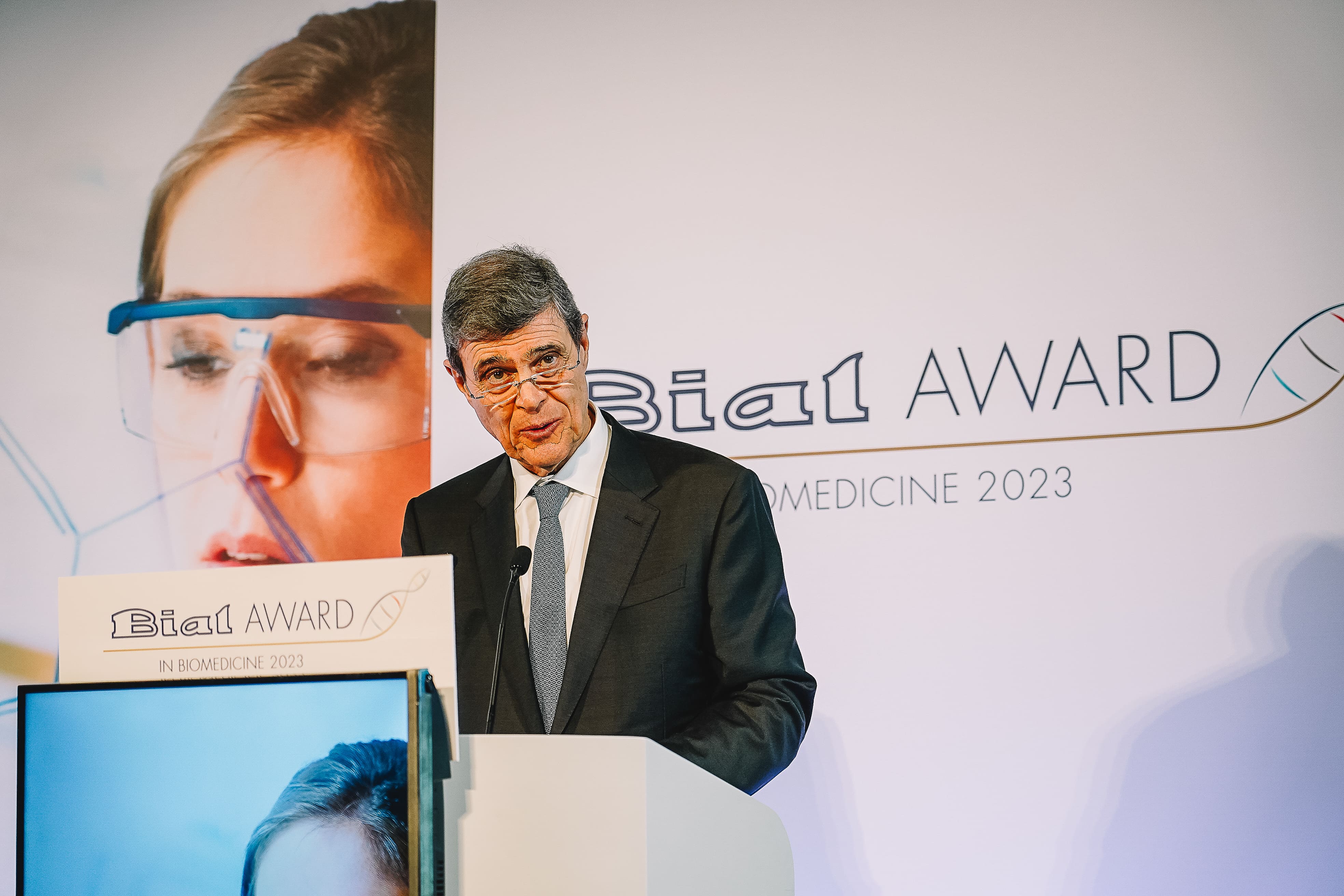
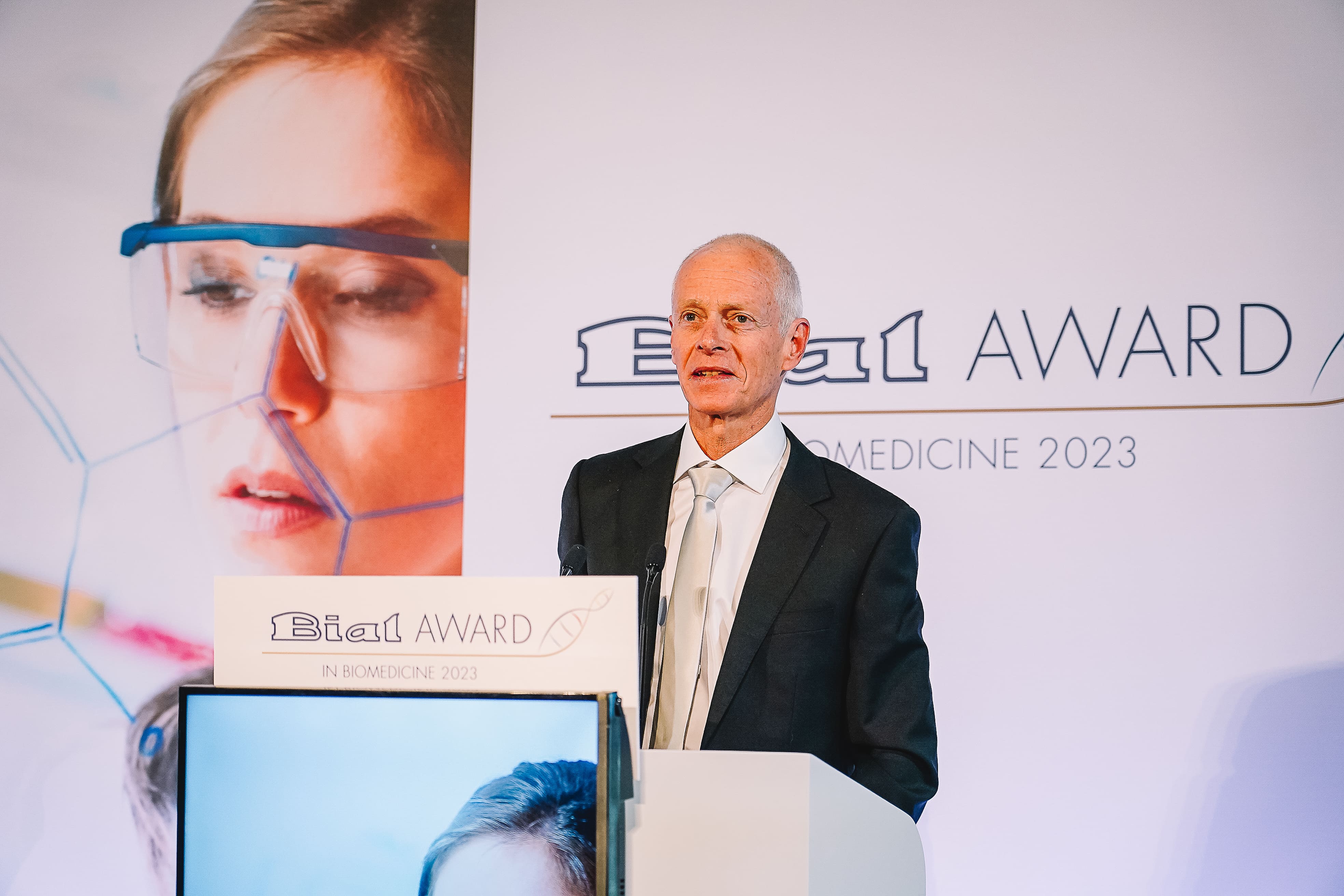
Brain cells normally communicate with one another through very specialized contacts — synapses — and release chemicals that allow one brain cell to excite another. The authors began their project by finding structural features in brain tumours that had all the appearance of synapses. Moreover, these synaptic features were found in the most malignant brain tumours. They next found that these synapses were functional and provided the growing tumour with nourishing input from the brain, which stimulated the growth and malignancy of the tumour.
These findings help explain some of the bizarre characteristics of brain tumours, like the fact that they can weave themselves throughout the brain, while other tumour types simply form a hard lump or mass. This may also explain - at least in part - why brain tumours can often go undetected with few symptoms.
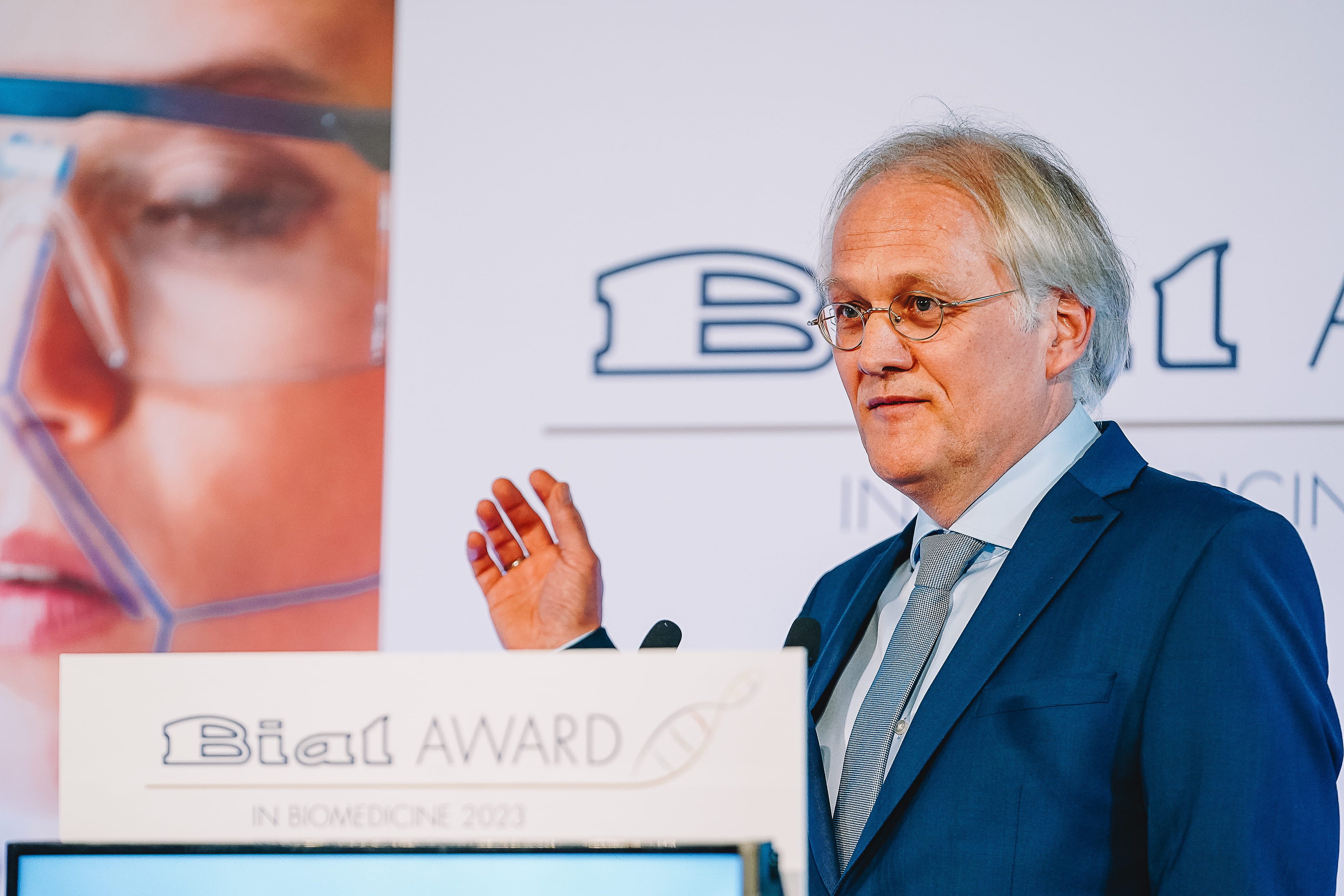
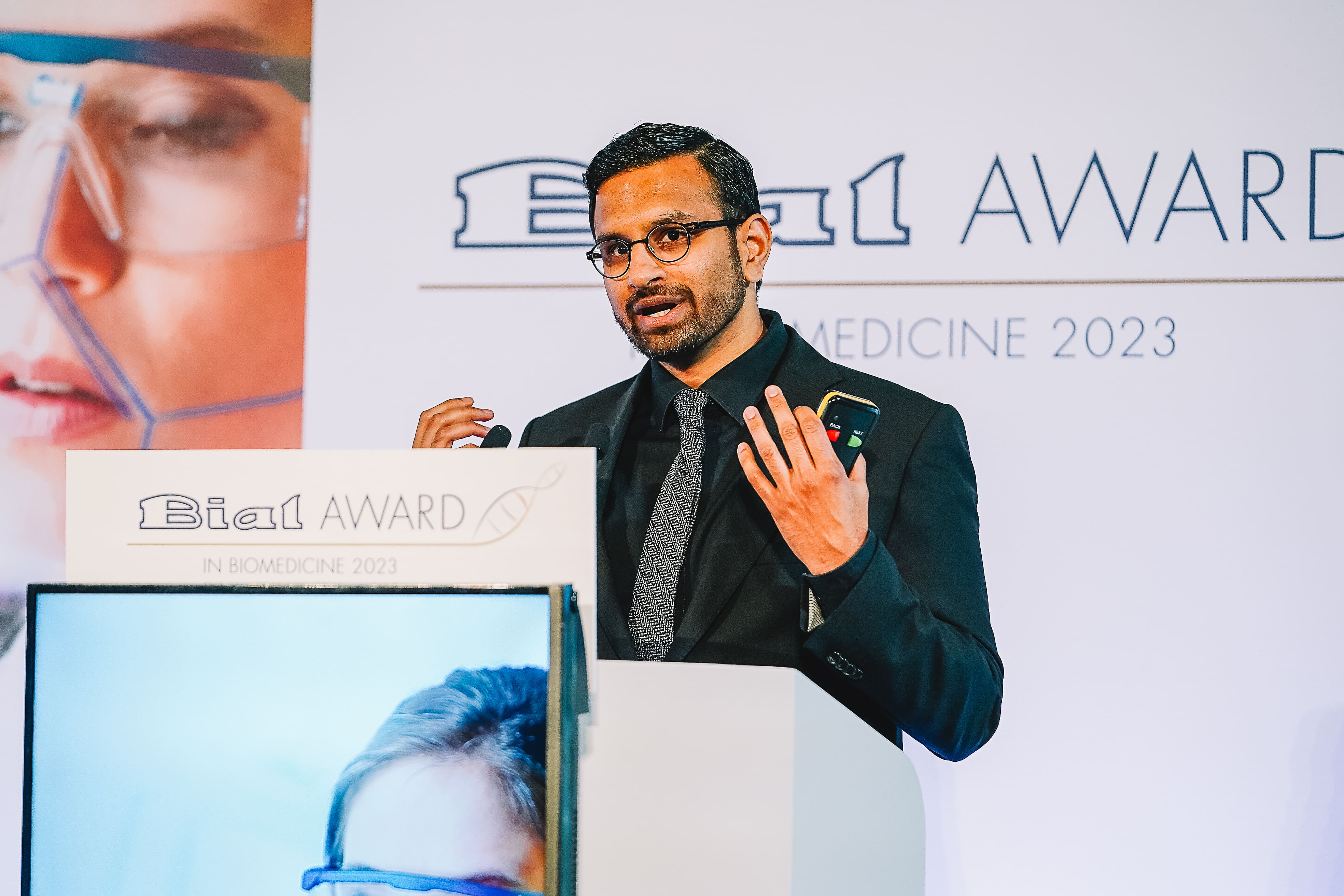
The specifics of the synaptic transmission found also point to targeted drugs that can be used to treat brain cancer. The award-winning research also provides a new explanation for why epilepsy and tumour progression are often observed together: epilepsy may be a cause, rather than a consequence of the tumour progression.
For Ralph Adolphs, "this edition’s winning paper represents one key study in cancer neuroscience, illustrating a fundamental and absolutely critical issue in cancer in general. Cancer cells cannot merely proliferate — they have to hijack healthy biological processes and integrate themselves into the normal function of tissues. Nowhere is this more blatant — and surprising — than in the brain tumours studied in the present paper”.
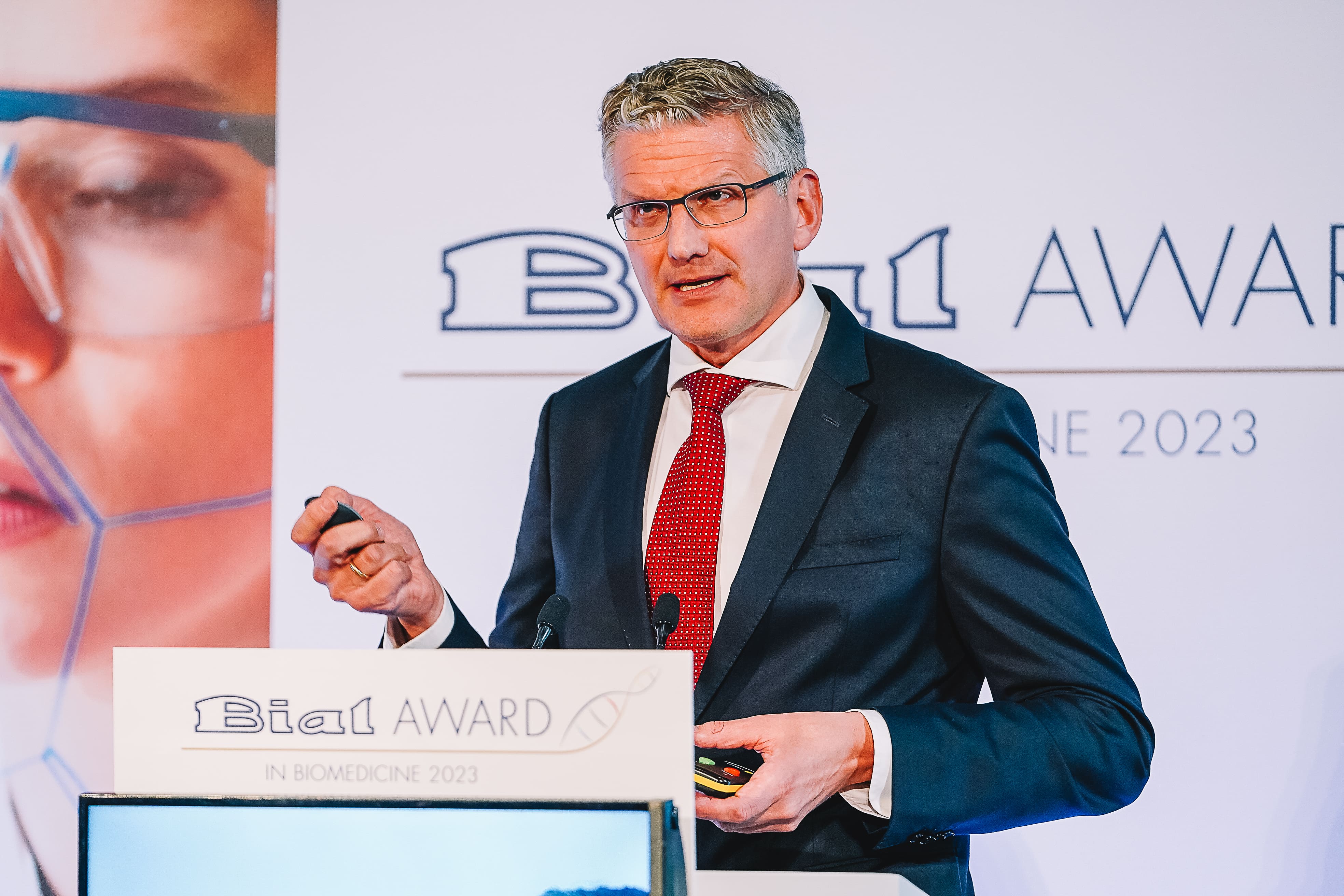
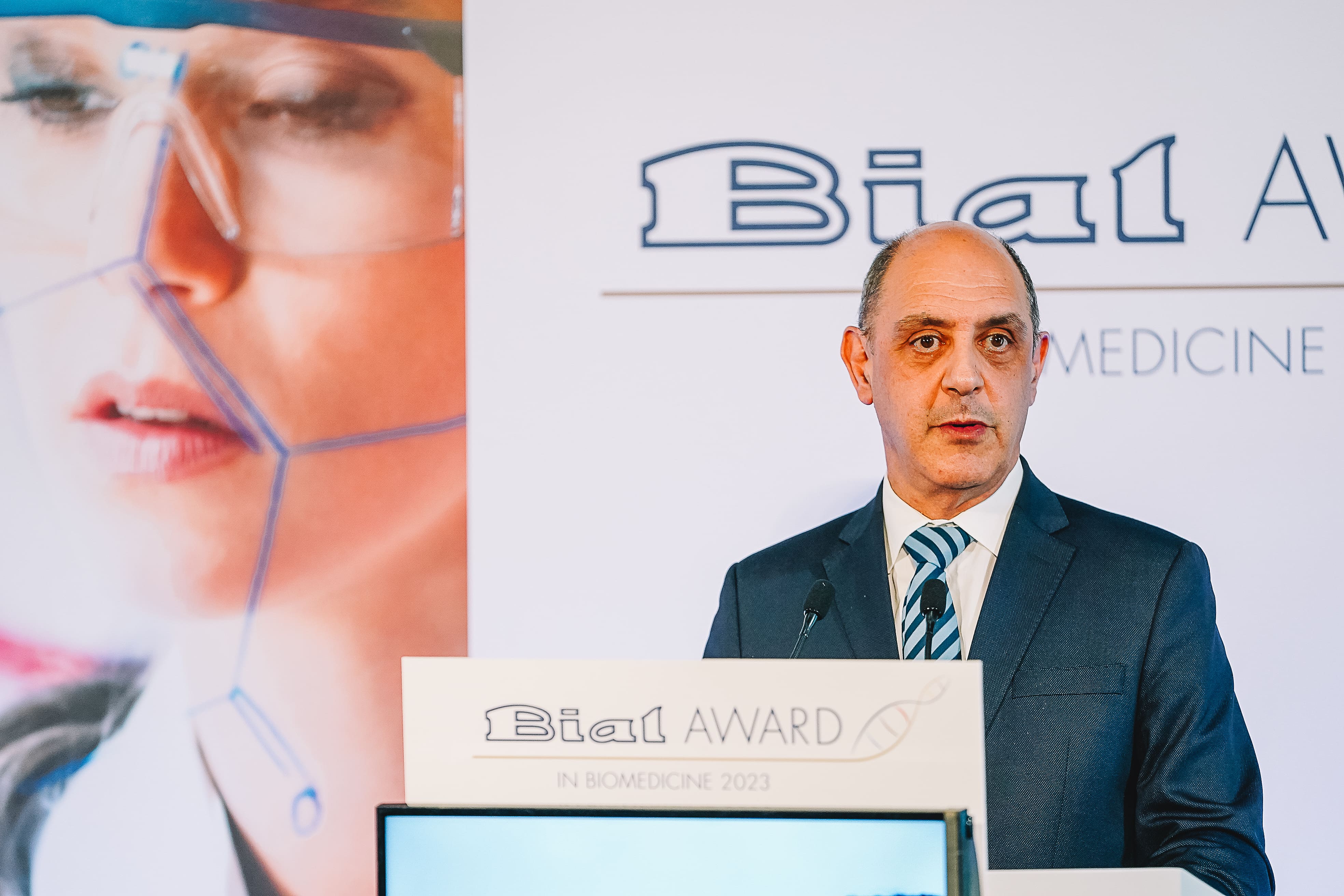
The winning paper was chosen from 70 nominated as the most important research papers published in the last 10 years in the field of biomedicine. The nominated papers represented studies ranging from basic research to clinical trials, including work in the fields of neurosciences, oncology, rheumatology, metabolic and infectious diseases.
The next edition of the BIAL Award in Biomedicine, promoted by the BIAL Foundation, will take place in 2025.
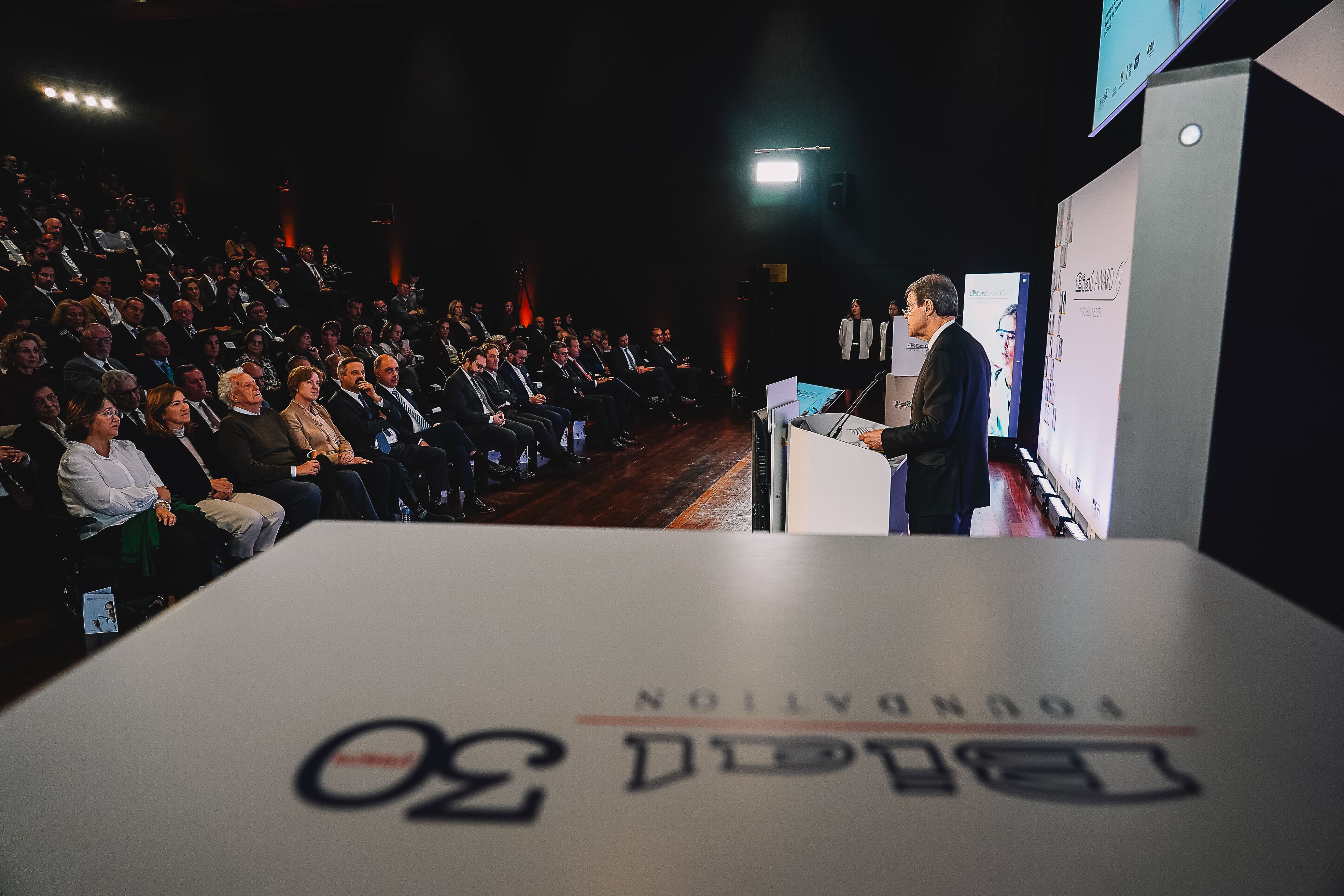
Authors of the award-winning work and their institutions at the time of publication of the research report:
Heidelberg University, Germany
Varun Venkataramani, Dimitar Ivanov Tanev, Christopher Strahle, Christoph Körber, Markus Kardorff, Heinz Horstmann, Sang Peter Paik, Johannes Knabbe, Frank Herrmannsdörfer, Amit Agarwal, Felix Sahm & Thomas Kuner
Heidelberg University Hospital, Germany
Varun Venkataramani, Dimitar Ivanov Tanev, Alexander Studier-Fischer, Laura Fankhauser, Tobias Kessler, Ruifan Xie, Mirko Messer, Sevin Turcan, Wolfgang Wick, Felix T. Kurz & Frank Winkler
German Cancer Research Center (DKFZ), Germany
Varun Venkataramani, Dimitar Ivanov Tanev, Alexander Studier-Fischer, Laura Fankhauser, Tobias Kessler, Miriam Ratliff, Ruifan Xie, Mirko Messer, Wolfgang Wick, Felix Sahm, Azer Aylin Acikgöz, Hai-Kun Liu & Frank Winkler
University Hospital Mannheim, Germany
Miriam Ratliff & Daniel Hänggi
Otto-von-Guericke University, Germany
Christian Mawrin
Johns Hopkins University School of Medicine, USA
Amit Agarwal & Dwight E. Bergles
Institute of Cancer Sciences, University of Glasgow, UK
Anthony Chalmers
University of Bergen e Haukeland University Hospital, Norway
Hrvoje Miletic

